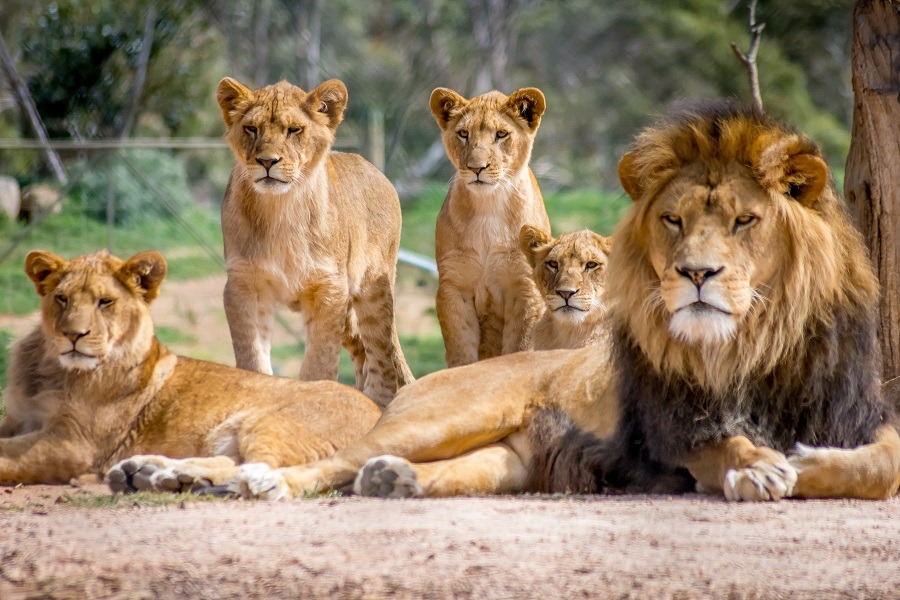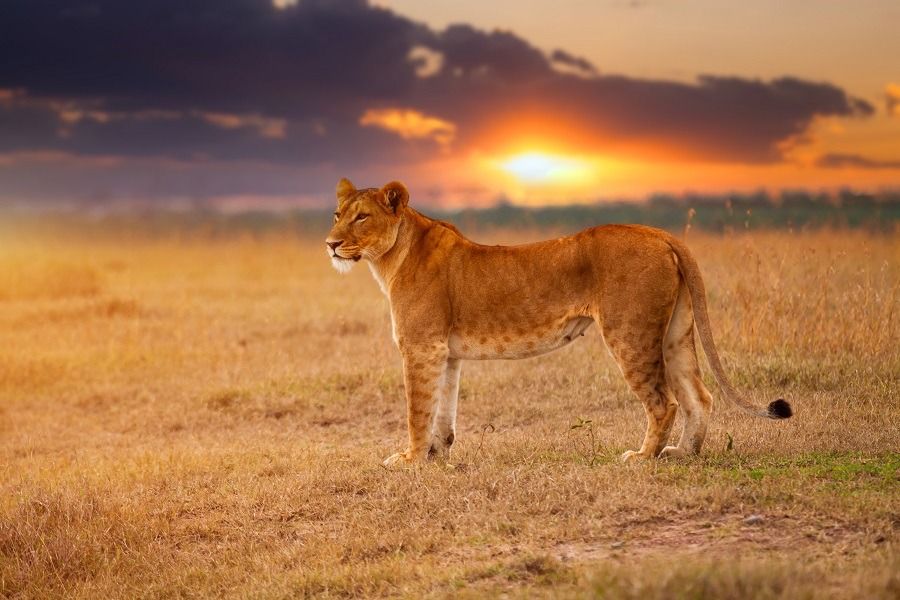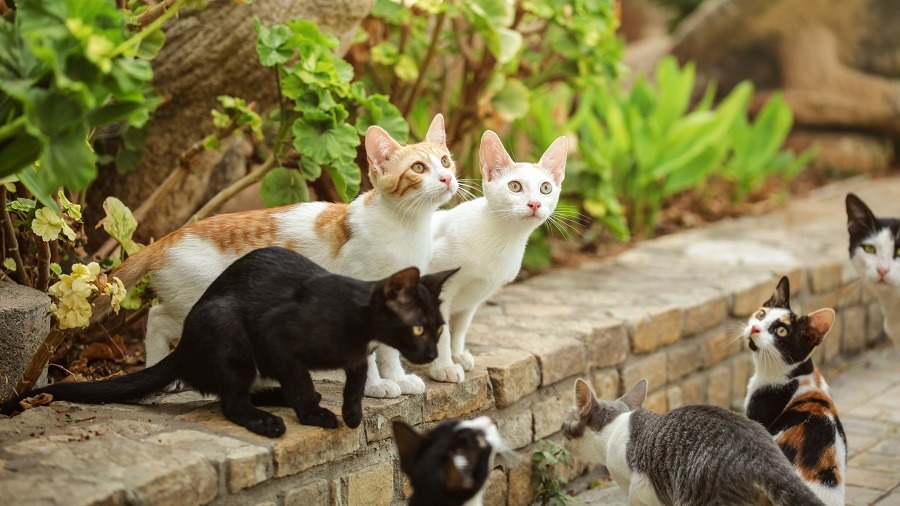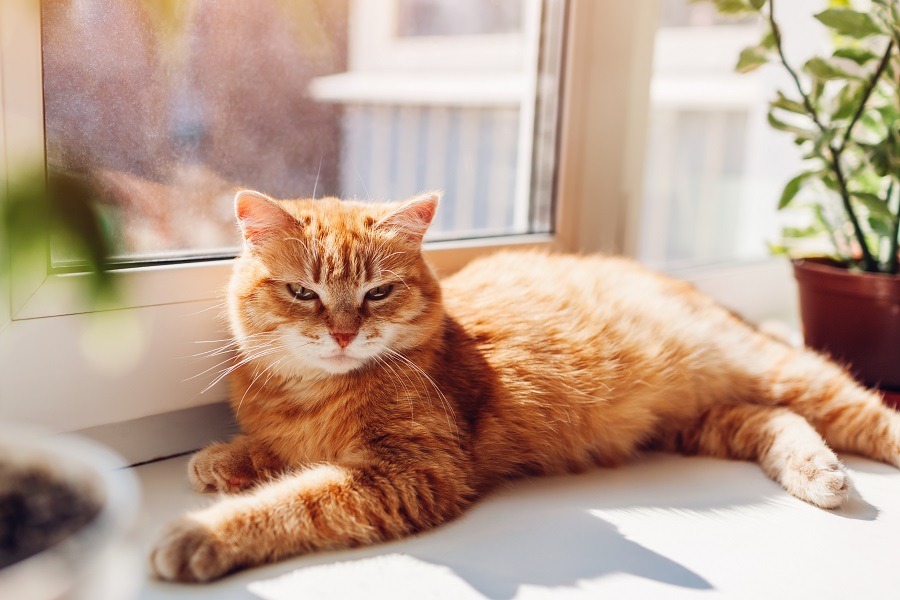Here’s whether lions or tigers eat house cats:
Tigers and lions can eat house cats.
Generally, though, lions and tigers won’t eat house cats because their small size is not enough to fulfill the meat requirements.
However, if there’s food scarcity and your pet cat is seen as competition, or worse, a food source, tigers and lions might hunt your pet cat.
So if you want to learn all the details about lions and tigers eat house cats, then you’re in the right place.
Let’s dig right in!
What Are About Lions, Tigers, and House Cats?
You may have wonder what might happen if your pet cat finds itself in a cage with a lion?
Maybe nothing. Maybe it becomes the lion’s lunch.
Lions are big, wild cats and often called the “King of the Jungle.”
So you can expect anything to happen.
However, the ruthlessness of creatures in the wild can be severe.
For example, tigers can be so brutal that they can eat their own cubs if they think they would not make perfect tigers.
Do Tigers and Lions Eat House Cats?
Both lions and tigers are apex predators and stand at the top of the ecological pyramid.
They are obligate carnivores and cannot survive without meat.
Their prey list can range from mice to wildebeests.
They eat anything that is called meat, and they do this to survive.
So, tigers and lions can eat house cats, if that is all that is available.
Other felines, such as cougars, leopards, and jaguars, obligate carnivores and eat anything they come across, including house cats.

This does not mean they hunt your pet cat.
Normally lions and tigers will not eat house cats.
However, if there’s food scarcity and your pet cat is seen as competition, or worse, a food source, then yes, tigers and lions might go after your pet cat.
However, they are definitely not the preferred prey of these apex predators.
And most house cats have enough sense if confronted with something more powerful.
So they will just turn tail and run.
However, this has a negative impact.
This response activates the chase and hunt instinct of both lions and other big cats, often resulting in poor outcomes for your pet cat.
Why Is My House Cat Not the Main Course for Lions and Tigers?
The answer to this question lies in the arguments listed below.
Do Cats Look Familiar To Lions and Tigers?
With regard to shape, the cats look more similar to cougars and lynx than they do to lions and tigers.
Kittens of some cat breeds look similar to very young lion cubs.

So, a young lioness may adapt the kittens instead of eating them. This depends upon the age of the lioness and kittens.
Male lions will usually treat house cats with aggression.
Despite differences in size, voice, behavior, house cats still appear to be bonsai versions of their wild relatives.
Are Domestic Cats Are Available In the Wild?
The lions and tigers live in more remote places, so interaction with humans and their pets is kept to a minimum.
So confrontations between house cats and large felines are rare.
The smell is another key factor, along with a similar appearance. Each animal has its own individual odor. It’s like their identification card.

So a large cat might have two responses: ignore or treat the house cat as a competitor. If the latter, your house cat will be in trouble.
However, chances are the cat will not be eaten, only killed.
Do Carnivores Eat Other Carnivores?
All the felids (tiger, lion, jaguar, cougar, leopard, or domestic house cat) are essentially carnivorous. They eat only meat.
Their digestive system is not adapted to digest grasses and vegetation. But they need the nutrition that comes from meat that comes from plants eaters.
So it tastes good to them. Unfortunately, meat from meat sources is not so tasty. Therefore carnivores don’t like to eat carnivores.
Moreover, carnivores have very little fat because of the high protein diet and exercise from chasing their prey.
Do Cats Understand the Hunting Tactics of Lions and Tigers?
Mark Twain said: “Cats are more intelligent than people believe and can be taught any crime.”
Domestic cats (Felis catus) and lions (Panthera leo) belong to the same family, Felidae, and share many common behaviors. They think, eat, sleep and behave similarly.
Many of the tactics used by tigers or lions in capturing their prey are also used by domestic and wild cats while preying upon mice, rabbits, and birds.
They have an almost similar sense of vision and smell. In addition, all cats have quick reflexes. So a cat knows a cat better than any other species.
Do Lions or Tigers Have any Logic in Hunting House Cats?
Although wild cats can be as large as over 660 pounds (300 kg.), domestic cats are very small, averaging around 10 pounds (4.5 kg.).
This small size is not enough to fulfill the meat requirement of a lion.
For the requirement of a single lion, at least 3-4 domestic cats will be required and even more for the tiger.
This is because lions also hunt in groups and are social cats.

So would it be wise to expend energy to pursue such a small target that cannot pay back the energy expended?
So the lions do not attempt to attack a cat unless they have a good reason for doing so.
Lions, tigers, jaguars, pumas, leopards, and other big cats can kill, eat or prey upon a house cat, but they usually don’t.
This is because of the small size, nonavailability, similar appearance, and non-delicious nature of cat meat.
